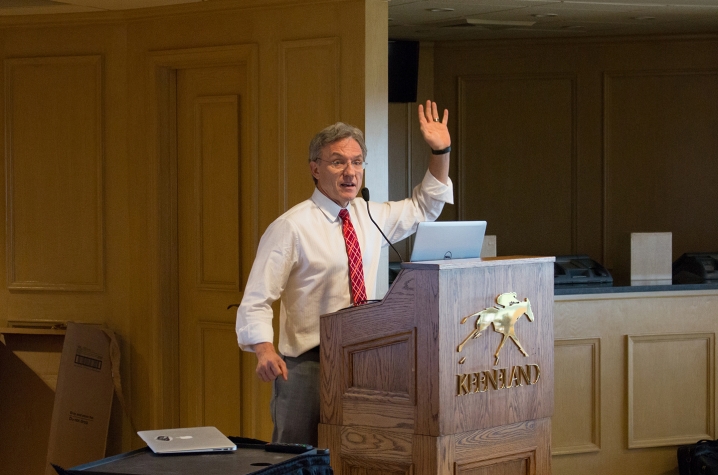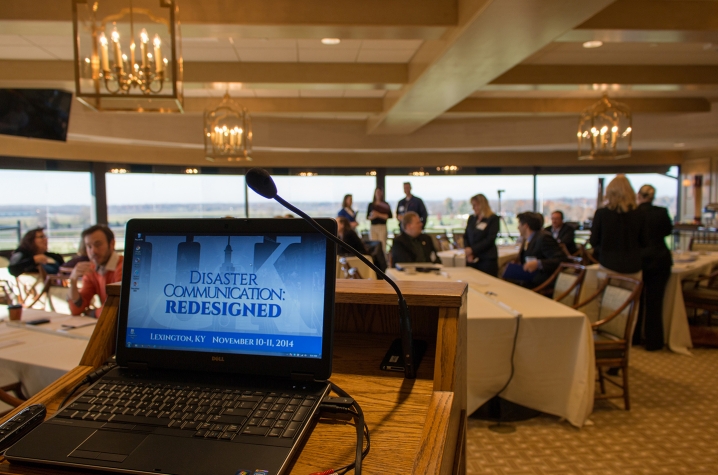Disaster Communication Workshop Helps Establish UK as Leader in the Field
LEXINGTON, Ky. (Nov. 24, 2014) — Scholars and practitioners from across the country gathered in Lexington Nov. 10 and 11 for a workshop to discuss the most pressing issues in disaster communication and set the research agenda for the field.
The workshop, titled “Disaster Communication: Redesigned” was funded by a grant from the National Science Foundation and invited academics from diverse fields as well as representatives from several federal agencies to participate. Scholars from sociology, communication, public health, geography, and engineering participated.
The workshop was held at Keeneland. Faculty and students from the University of Kentucky College of Communication and Information attended both days of the workshop and participated in the discussions, and several faculty members served as session moderators.
The impetus for hosting this workshop came out of the newly redesigned Center for Risk, Crisis, and Disaster Communication at UK. By establishing this center, UK wants to position itself as a leader for scholarly research that has practical applications.
Jeannette Sutton, co-chair of the workshop and new director of the Division of Risk Sciences, said she was excited to bring this group together for such an important purpose.
“I wanted to provide a space for interdisciplinary dialogue, to generate new ideas, and to establish UK as a leader in this area,” she said.
Sutton has also been working with faculty in the school of Library and Information Sciences to create a searchable database of scholarly articles in the fields of risk, crisis, and disaster communication. Participants from the workshop will be submitting citations from their published research that is most relevant to these topics to be listed in the database.
A unique feature of this workshop was that the representatives from the federal agencies were able to speak to the issues that “keep them up at night,” and provide suggestions to the scholars present on how to tailor their research to have practical applications in the field. These agencies included the CDC, FEMA, and the National Weather Service, among others. They agreed that this research is some of the most important in terms of its relevance as the number of threats they deal with increase in number and complexity.
Timothy Sellnow, workshop co-chair, echoed these sentiments.
"The workshop created an unprecedented opportunity for scholars from an array of disciplines to build collaboration. Crises are growing in frequency, complexity, and intensity. An interdisciplinary effort is needed to manage this increasing threat," Sellnow said.
The collaboration among attendees did not end with the workshop. An edited book with chapters authored by participants is in the works, and interdisciplinary research projects will continue.
MEDIA CONTACT: Ann Blackford at 859-323-6442 or ann.blackford@uky.edu.








